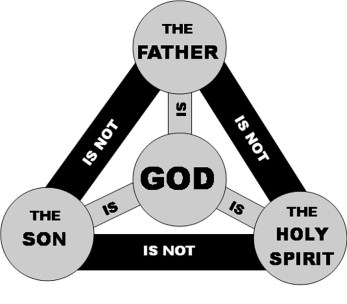TheWhat?
Ate all the treats
- Jul 3, 2021
- 1,297
- 532
- Country
- United States
- Faith
- Christian
- Marital Status
- In Relationship
Edit: I hit the reply button on the wrong post!
I prefer not to dwell on this because, in defense of my personal faith, I'm often pushed into areas I'm not comfortable to even attempt to articulate, but lastly, I have a loose analogy to help illustrate my contention. It's fairly well accepted that America is seen as a capitalist nation. Many would go so far as to push that fact beyond reason, with the implied assumption that America was always a capitalist nation. The reality is that America was founded before these economic matters were debated with much clarity. The founders essentially wanted to allow for liberties, so that if you are compelled for some reason to live in a religious commune, you could do so, and we do still have some of these religious traditions remaining. But something happens when we enter into the debate between capitalism and socialism: we to some extent lose the original vision. This is similar to what I see happening when christians who are merely following inspired instruction, are shoehorned into arianism by those who are too polarized within the context of that debate.
I wouldn't advocate Arianism (=Jesus is created); and it's not just the Father and the Word/Jesus are distinct (by definition any utterance from a being is different from that being). Jesus, John and Paul make a sharp distinction between God and Jesus. The whole 'Homoousion' debate is a bit beyond me as this is non-Biblical terminology; I don't feel I should or could make a qualified call on that. Jesus has been 'begotten' or 'generated' by the Father somehow, that's sufficient for me.
The original Nicene creed (325) also clearly states that there is one God: the Father. And furthermore declares Jesus to be god of god, etc. But still the one God is only the Father in this creed. I think that is also found in all those verses I quoted. Jesus is sub-ordinate to the God the Father; so not equal in rank. Jesus is at the right hand of God, not 'God the Father'.
1 Corinthians 15:27
For “God has put all things in subjection under his feet.” But when it says, “all things are put in subjection,” it is plain that he is excepted who put all things in subjection under him.
Philippians 2:9
Therefore God has highly exalted him and bestowed on him the name that is above every name, so that at the name of Jesus every knee should bow, in heaven and on earth and under the earth, and every tongue confess that Jesus Christ is Lord, to the glory of God the Father.We can see in both verses God (= the Father) is the one make makes everything subject to Jesus, and God (= the Father) gives Jesus a name above every name. God is distinct here from Jesus, and the name of God (YHWH) is distinct from the name of Jesus. The name that is the subject of Philippians 2:9 is not YHWH, and Jesus is not the new name for God - every Jew would know that. Jesus is the name of the son of YHWH.
Yet we see YHWH through and in Jesus, and Jesus has been given all power in heaven and on earth (by God the Father), hence he is our Lord (= Master), and everything he does and says is God speaking and acting through Him.
Phrased like this - it is wonderfully straightforward to understand and less contradictory than the traditional 6th-century 'Athanasian' way of thinking. In my humble opinion that 6th creed has ruined the 4th century Nicene one when it comes to logical consistency.
I prefer not to dwell on this because, in defense of my personal faith, I'm often pushed into areas I'm not comfortable to even attempt to articulate, but lastly, I have a loose analogy to help illustrate my contention. It's fairly well accepted that America is seen as a capitalist nation. Many would go so far as to push that fact beyond reason, with the implied assumption that America was always a capitalist nation. The reality is that America was founded before these economic matters were debated with much clarity. The founders essentially wanted to allow for liberties, so that if you are compelled for some reason to live in a religious commune, you could do so, and we do still have some of these religious traditions remaining. But something happens when we enter into the debate between capitalism and socialism: we to some extent lose the original vision. This is similar to what I see happening when christians who are merely following inspired instruction, are shoehorned into arianism by those who are too polarized within the context of that debate.
Last edited:
Upvote
0

